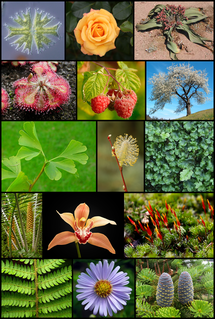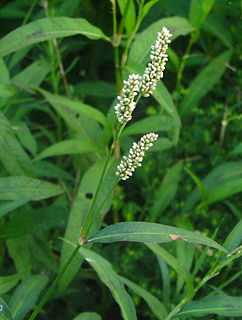
La Recoleta Cemetery is a cemetery located in the Recoleta neighbourhood of Buenos Aires, Argentina. It contains the graves of notable people, including Eva Perón, presidents of Argentina, Nobel Prize winners, the founder of the Argentine Navy, and a granddaughter of Napoleon. In 2011, the BBC hailed it as one of the world's best cemeteries, and in 2013, CNN listed it among the 10 most beautiful cemeteries in the world.

El Dorado, originally El Hombre Dorado or El Rey Dorado, was the term used by the Spanish Empire to describe a mythical tribal chief (zipa) of the Muisca native people in then Spanish colonial province of Colombia, who, as an initiation rite, covered himself with gold dust and submerged in Lake Guatavita. The legends surrounding El Dorado changed over time, as it went from being a man, to a city, to a kingdom, and then finally to an empire.

Cumbia[ˈkumbja] is a folkloric rhythm and dance from Colombia. The origin of cumbia music comes from the days of slavery in the late 17th century and is derived from the African word “cumbe” which means dance. The basic cumbia steps originate from the fact that when the music itself was born, the slaves had their legs shackled and very minimal movement was possible. Another word was later derived later in the Antioquia region of Colombia called caracumbe and was coined by African slaves who worked in the mines. A third variation of the word called paracumbé emerged and then disappeared as well as the term cumbancha which in Cuba means party. One thing is for certain, cumbia was born of a cultural melting of Black and Indígena backgrounds. By the 1940s cumbia began spreading from the coast to other parts of Colombia alongside other costeña form of music, like porro and vallenato. Clarinetist Lucho Bermúdez helped bring cumbia into the country's interior. The early spread of cumbia internationally was helped by the number of record companies located on the coast. Originally a working-class populist music, cumbia was frowned upon by the elites, but as the music pervaded class association with the music subsided in Colombia and cumbia became a shared music in every sector of society.
Prunus guanaiensis is a species of tree in the family Rosaceae. It is native to western South America. Its phenotype suggests close affinity with three other South American species of Prunus; P. debilis, P. littlei and P. wurdackii.
Prunus villegasiana is a species of plant in the family Rosaceae. It is endemic to Colombia. It is most likely a synonym of Prunus subcorymbosa or Prunus integrifolia.
Magnolia amazonica is a flowering evergreen tree of the Magnoliaceae family native to the lower western Amazon River Basin, including Peru and Brazil.
Magnolia rimachii is a small to medium-sized tree of the Magnoliaceae family commonly reaching 8 to 15 m high. It is found in the western lowland Amazon Basin tropical forest, in Ecuador and Peru, between 140–500 metres (460–1,640 ft) in elevation.

Vox is a political party in Spain founded on 17 December 2013, by former members of the People's Party (PP). The party is described variously as right-wing, right-wing populist, or far-right.
Dmytro Zajciw was a Ukrainian and Brazilian entomologist, notable for his collection and for his many beetle discoveries. He was the author of Two new genera and species of neotropical Longhorn beetles , 1957, Contribution to the study of Longhorn beetles of Rio de Janeiro , 1958, and was the first to describe the genera Adesmoides and Pseudogrammopsis, as well as the species Beraba angusticollis and Mionochroma subaurosum, among many others.
Prunus buxifolia is a species of tree in the Rosaceae family. It is endemic to Colombia, where it is called Chuwacá.
Prunus integrifolia is a tree native to mountain forests of western South America. It has much larger leaves than most other species in the genus, up to 25 cm long, with no teeth along the edges. Flowers are in an elongated raceme, rising vertically upwards rather than hanging as in some other species
Prunus debilis is a South American species of Prunus. Its phenotype suggests close affinity with three other South American species of Prunus; P. littlei, P. guanaiensis and P. wurdackii. The Jivaro people chew the pulp of its fruit to alleviate the pain of toothaches.
Prunus littlei is a species of tree in the Rosaceae family. It is native to mountain forests of northwestern South America. Its phenotype suggests close affinity with three other South American species of Prunus; P. debilis, P. guanaiensis and P. wurdackii.
Prunus wurdackii is a species of Prunus found only on the slopes of tepuis of the Chimantá Massif in Venezuela, at 900 to 2200 m in elevation. Judging from its morphology, it is closely related to Prunus espinozana, described in the same publication. It is a tree 3 to 15 m tall, with branchlets that are brown tending to black. It differs from Prunus littlei, another close relative, in having thicker, more leathery and more lustrous leaves, with longer petioles. Its solitary inflorescences, by contrast, have shorter pedicels and shorter styles. Its calyx is salmon-colored, and the petals white.

A crisis concerning who is the legitimate President of Venezuela has been underway since 10 January 2019, when the opposition-majority National Assembly declared that incumbent Nicolás Maduro's 2018 reelection was invalid and the body declared its president, Juan Guaidó, to be acting president of the nation.







